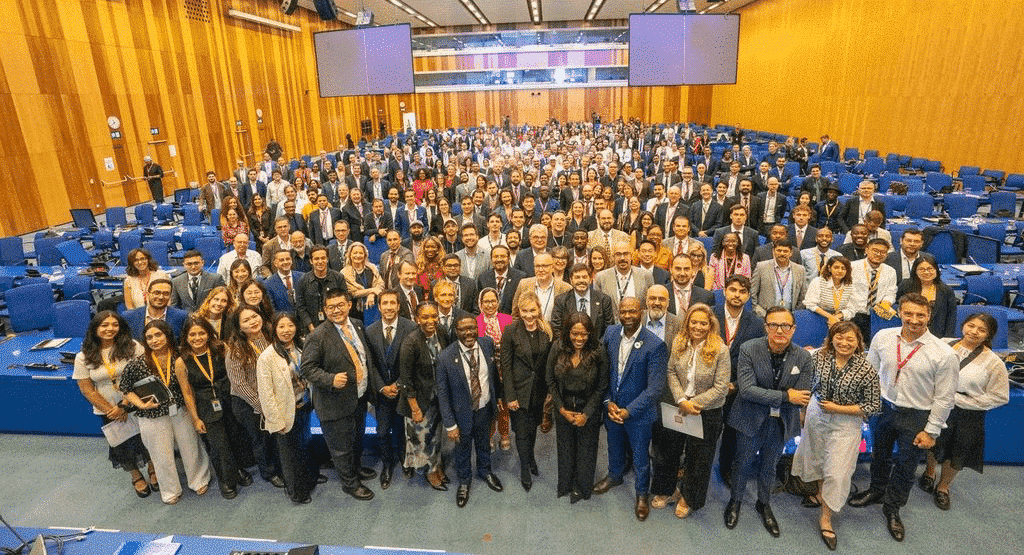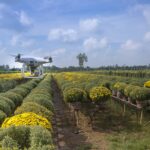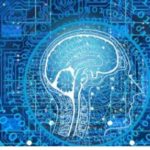The world of Artificial Intelligence (AI) is growing at an unprecedented pace. In advanced economies, AI is revolutionizing industries, solving complex problems, and driving innovation. However, when we turn our attention to the Global South—low- and middle-income countries (LMICs)—the story is different. Despite the promise AI holds for transforming economies and societies, the Global South remains largely excluded from the AI revolution. The gap is evident not only in technological access but also in funding, research, and capacity-building.
In July, Ksapa was honoured to be invited to speak at the United Nations-hosted Artificial Intelligence for Developing Countries (AIFOD) summit in Vienna which tackles this critical issue. The forum’s focus was clear: AI should not just serve the privileged few, but all of humanity, especially those in the Global South. This mission couldn’t be more urgent, especially when we consider that less than 1% of global AI funding flows into the Global South.
“The aim of the AI for Developing Countries Forum aligns with the UN’s mission of promoting sustainable development, equality, and peace. By ensuring the ethical deployment of AI in developing nations, this forum can drive social progress, economic growth, and empowerment, helping them reap the maximum of benefit from AI, while minimizing its negative impact.” – David Chilvaidze, Former Cheffe de Cabinet, Office of the Director-General of the UNOG
Why AIFOD Matters ?
The AIFOD forum was not just another tech gathering about Artificial Intelligence. Its focus was about ensuring that AI doesn’t perpetuate inequalities but instead works to level the playing field for all countries. The event brought together policymakers, AI experts, and thought leaders to discuss how developing countries can become active participants in the AI landscape. More importantly, it provided a platform to explore how AI can be shaped for the unique needs of the Global South, focusing on sustainable development and ethical principles.
Key Topics Discussed at AIFOD
The forum tackled a wide range of issues, each of which is vital to understanding how AI can become an inclusive and sustainable force for good. Here’s a look at some of the key topics and discussions:
1. Trends in AI Investment
One of the key discussions centered around the growing disparity in AI investment. While advanced economies continue to secure billions of dollars in AI funding, developing countries receive a fraction of these resources. This gap not only limits the potential for innovation but also undermines efforts to solve critical challenges faced by LMICs. The conversation focused on the need for increased investment in AI initiatives that directly address issues like healthcare, agriculture, education, and poverty alleviation in the Global South.
2. Bridging the Funding Gap
How to bridge the funding gap for AI in developing countries was also at the heart of the discussions. Experts emphasized the need for global partnerships, inclusive policies, and targeted funding mechanisms that would empower local AI startups, research institutions, and governments in the Global South. The goal is not just to attract more funding but also to ensure that these investments are directed towards projects that meet the needs of local communities.
3. Models That Work
AI solutions that have succeeded in the Global South were highlighted throughout the event. These examples showcased that AI being applied in innovative ways across the developing world. From AI-powered healthcare solutions in Africa to precision agriculture models in South Asia, these examples underscored the potential for AI to transform sectors that are crucial for economic development. However, scaling these initiatives requires sustained support and collaboration from international organizations, governments, and the private sector.
4. Principles for Responsible and Fair AI
As AI technologies continue to evolve, there is growing concern about their ethical implications—especially when it comes to the Global South. At AIFOD, discussions were held around the four pillars of responsible AI, which are critical to ensuring that AI serves the needs of developing countries without exacerbating existing inequalities.
Respectful Entry: AI solutions should be introduced with cultural sensitivity and an understanding of the unique challenges faced by LMICs. It’s important that AI technologies are not imposed on communities but are developed in consultation with local stakeholders. This means engaging local governments, businesses, and civil society to co-create solutions that are both relevant and sustainable.
Shared Development: The development of AI should be a collaborative process that involves all parties—governments, academia, industry, and civil society. This ensures that AI technologies reflect the needs and aspirations of the people they are designed to serve, rather than just the interests of global tech giants.
Data Stewardship: In an age where data is the most valuable resource, responsible data stewardship is critical. For the Global South, ensuring that data is used ethically, and that local communities maintain control over their data, is a vital aspect of AI development. This means adopting frameworks that protect data privacy, promote transparency, and ensure that data is used for the benefit of local populations.
Sustainable Impact: The ultimate goal of AI is not just to implement technology but to create lasting positive change. This means that AI solutions should be designed to be environmentally sustainable, economically viable, and socially inclusive. The Global South faces many challenges, from climate change to public health crises, and AI must be harnessed to address these issues in ways that will have a long-term, sustainable impact.
A Path Forward for AI in the Global South
The AIFOD forum is an important step in recognizing the need for AI solutions tailored to the unique challenges of developing countries… but this is just the beginning. To ensure AI serves the needs of the Global South, several steps need to be taken:
- Strengthening Local Capacity: Investment in AI education and training is critical to developing a local talent pool capable of driving AI innovation within the region.
- Promoting Collaborative Partnerships: Governments, tech companies, and international organizations must work together to create environments that foster innovation, investment, and knowledge sharing.
- Developing Ethical AI Frameworks: As AI adoption grows, it is imperative that countries in the Global South develop and enforce ethical frameworks to ensure AI is used responsibly, transparently, and inclusively.
- Ensuring Accessibility: AI should not be the domain of a select few. It must be made accessible to all countries, ensuring that LMICs are not left behind in the digital age.
Conclusion
The discussions at the AIFOD forum highlight the tremendous potential of AI to drive progress in the Global South. However, there is a long road ahead. Bridging the investment gap, adopting inclusive and ethical AI principles, and building local capacity are essential to ensuring that AI fulfills its promise for developing countries. The forum made it clear: AI can—and must—serve the needs of all people, not just the privileged few. In the coming years, we will likely look back on this moment as the start of a pivotal shift toward a more equitable, inclusive, and sustainable AI future.
The Global South’s time to shine in the AI world is now. Let’s ensure we make it happen.
Additional resources
At Ksapa, we care about this issues especially when they intersect with Business & Human Rights and Agricultural Supply Chains in developing economies where vulnerable populations are predominant. Read more on our works & analysis on the topic:
- AI & Human Rights: UN Business Guidance
- Digital Inclusion in Agriculture Value Chains
- SUTTI Digital Solution Suite: at the forefront of Digital inclusion
- AI Standards / Guidelines
- Respectful Entry (Community Engagement & Cultural Respect)
- UNESCO Recommendation on the Ethics of AI (2021)
- Partnership on AI Global Task Force for Inclusive AI
- Indigenous AI Ethics Frameworks (OCAP , Te Mana Raraunga)
- Shared Development (Capacity Building & Benefit Sharing)
- Fair Trade Standards
- B-Corp Certification
- World Bank Technology Transfer Framework
- Data Stewardship (Data Sovereignty & Community Oversight)
- Sustainable Impact (Long-term Community Benefit)
- Impact Management Norms (formerly IMP)
- Social Return on Investment (SROI)
- SDG Alignment Frameworks
- Ubuntu-Inspired and Developing Market Frameworks
- Ubuntu-Based AI Governance
- African Union Continental AI Strategy (2024)
- South-South Cooperation Frameworks
- Respectful Entry (Community Engagement & Cultural Respect)
Christian intervient chez Ksapa en qualité de Directeur des Solutions Numériques. Christian a 20 ans d’expérience professionnelle dans le secteur informatique, après avoir exercé différentes positions en développement et vente de solutions au sein d’IBM France, Metamerge A/S (Norvège) et du Centre National Etudes Spatiales.
En reconversion et désireux de renforcer la contribution de ses projets à l’intérêt général, Christian a récemment suivi un Executive Masters aux Mines ParisTech/ISIGE.
Christian parle français, anglais, serbe, espagnol et russe.







